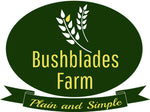Regenerative Farming

Chemical-heavy farming techniques have led to global degradation of fertile soil and biodiversity, to the extent that it has become a threat to all life on the planet. Degraded food already presents a number of modern health issues. Food nutrition has diminished, and the world no longer has enough arable topsoil to sustain the current demand of food production.
Regenerative agriculture is a conservation and rehabilitation approach to food and farming processes. It focuses on topsoil regeneration by recycling as much farm waste as possible to not only improve the organic matter present, but to increase the biodiversity of organisms in the soil. This in turn improves the water cycle and increases resilience to climate change.
It’s philosophy is a holistic approach to food production taking into consideration all the potential negative effects on the environment from the farming activity, not only mitigating the impact but improving soil health to naturally minimize pests and pathogens present to avoid chemical intervention.
According to the FAO, we only have 60 global harvests left and within this generation, we may end up having 9 billion mouths to feed. If we don’t start regenerating our soil, then it will become impossible to feed our global population whilst keeping global warming at bay and pausing the destruction of biodiversity.
The world is changing, the UK Government is now on board and appreciates that farming should be more than just sustainable, but regenerative. Flooding of our towns and cities and contamination of our water courses are too high a price to pay for over farming our soil. We need to reverse the trend and damage to our environment and encourage farmers to reinstate those essential biological functions by improving the biodiversity of our natural flora and fauna.

At Bushblades Farm we were very fortunate to be given the opportunity to take guardianship of an environment abundant in insects, diverse natural flora and its own natural water supply. Our traditional farming approach means we grow to the capacity of our land. We don’t add chemicals to maximise output and we try to encourage biodiversity in the insects, natural flora and wildlife which are essential ingredients for sustainable farming.
The use of non-commercialised food production methods means less impact on the environment. Pasture grazing animals are just that. Roaming freely in safe outdoor environments, exposed to the sun, fresh air and pure rainwater. We take our pleasure in enjoying them living life as they should.




